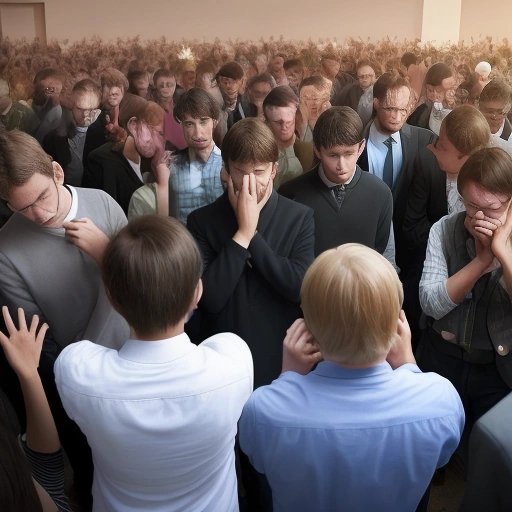In a bold move, Germany has recently announced a new law banning all "degenerate" behavior. This development has had an unforeseen side effect - the rest of the world transforming into an enormous Oktoberfest celebration.
At first, the news left many in disbelief. Did they really ban all activities deemed degenerate? Yes, they did. Germany was no longer a place for loudness, impoliteness, or vulgar behavior. It left many scratching their heads, wondering what could be degenerate about having fun and letting loose.
But the impact of this law was not limited to just Germany. Almost overnight, the world was immersed in a beer-filled, lederhosen-wearing, and Oktoberfest-obsessed society. Even in the most unlikely places, people could be seen embracing the German culture, learning traditional folk dances, and indulging in bratwurst and sauerkraut.
In the United States, cities like New York, Los Angeles, and Chicago started hosting their very own Oktoberfests, complete with beer gardens, lively music, and costumes. Even in smaller towns, people were finding ways to bring the Oktoberfest experience home, building their own beer tents in backyards or at local parks.
But it wasn't just America that was caught up in this cultural phenomenon. All around the world, people were dressing up in traditional Bavarian clothing, taking part in Oktoberfest-inspired feasts, and raising their glasses in honor of Germany.
In Australia, towns were transformed into Bavarian villages, with locals drinking from steins and marveling at majestic schnitzels. In Japan, sushi restaurants were replaced with bratwurst stands, and sake morphed into frothy beer. In Brazil, famous for its Carnival, the streets were flooded with people wearing Dirndls and dancing to polka music.
People from all over the world became enamored with the German lifestyle. The streets were filled with the sounds of polka music, the smell of grilled sausages, and the sight of lederhosen. It was as if Germany had become a global cultural superpower.
But this newfound obsession with Oktoberfest was not without its hardships. Many people struggled with the extensive drinking, and hangovers went through the roof. People even began to experience lederhosen-induced rashes, but they carried on, committed to the Oktoberfest experience.
Despite the initial shock of the ban on degeneracy, this cultural transformation has brought people together in ways no one ever thought possible. It has created a worldwide community of people who have embraced the German culture and found joy in celebrating life with good food, good drinks, and good company.
Who knows what the future holds? Maybe more cultural icons will inspire worldwide celebrations. But for now, the world belongs to Germany and their beautiful Oktoberfest. Prost!



